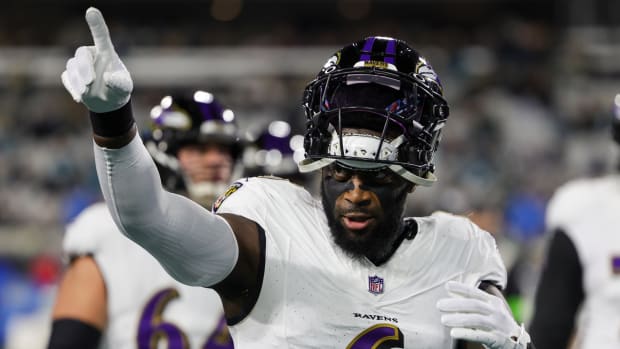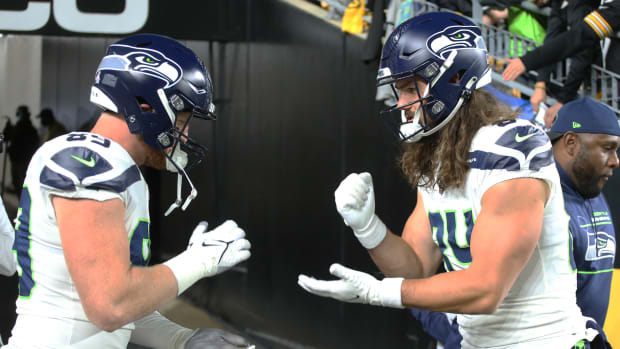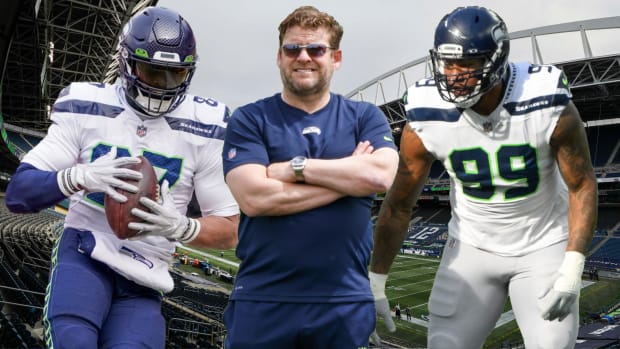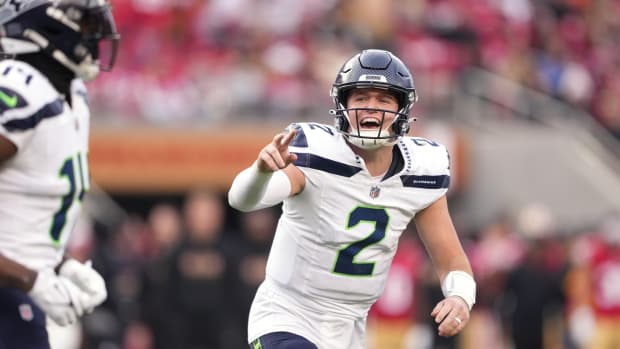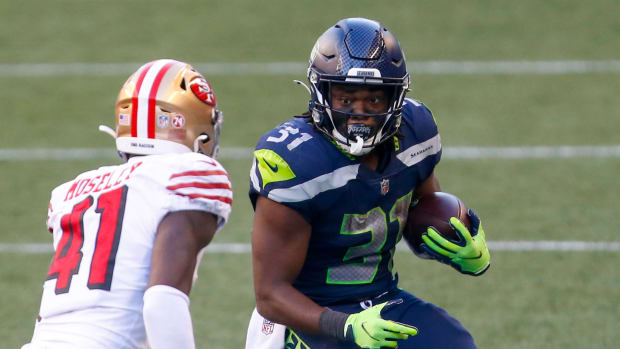How Seahawks, NFL Could Capitalize on Saturday Night Football
As the sports world grapples with the threat of coronavirus, leagues are pioneering new ways to evade the pervasive threat. The MLB is struggling to contain team outbreaks, the NBA has created a "bubble" in the midst of DisneyWorld, and the NFL is social distancing in semi-quarantined facilities. While professional sports move on with their seasons, college athletics are taking a cautious step back. For much of the NCAA, college football won't be happening this fall.
As of now, the Big 10, Pac-12, MWC, MAC, and several independent programs have decided not to play football this fall. Seventeen of the Seahawks' starters last year came from one of those schools, meaning evaluating talent for the future will be a significant challenge. However, the SEC, ACC, and Big 12 will continue to play games within their conferences, allowing schools like LSU and Alabama to demonstrate their talent against other elite programs. To the lament of players like Clemson's Trevor Lawrence, college players don't have a choice in whether or not they play this fall, which has some college players calling for a college players association similar to the NFLPA. But for now, college athletes have little say in how the fall and spring will impact their football futures.
With a partially-cancelled autumn season, college football players have limited options and unanswered questions as they look toward the 2021 NFL Draft. A spring season for many colleges could mean a postponed combine, and for athletes who didn't have a season at all, the usual combine metrics may not be enough to showcase their potential. While this has obvious implications for next year's draft, a fall without college football could mean more eyes on NFL games. ESPN's Adam Schefter highlights how the cancellation of college football clears opportunities for Saturday programming.
The coronavirus quarantine has completely altered television viewing habits - Americans have watched so much television this year that "prime time television" is a thing of the past. Streaming allows viewers to access content 24/7, and with modified viewing habits open to constant access to content, the NFL has 16 matchups to showcase over a four-day stretch. Hypothetically, four teams could play four different time slots on Monday, Thursday, Saturday, and Sunday without any overlap.
In the past, competitive teams and juicy rivalries have been rewarded with prime time night slots, but the shortage of football programming means everyone could get seen at some point. During a 635-day losing streak, the winless Browns didn't see a single prime time slot in 2017, but their 2018 success was rewarded with a second prime time game in December. If every matchup gets its own slot, sports fans can binge football games all day without having to pick favorites every Sunday afternoon.
Seahawks fans enjoy the benefits of a Russell Wilson-led offense that frequents the playoffs: good teams get great television slots. Last season, the Seahawks had five prime time matchups, and four are scheduled for 2020. That means that for the past two years, the Seahawks have been featured in least 25 percent of all prime time games. It's good for an energized fan base, but it's even better for Seahawks players and ownership.
While ticket sales are good for team morale, it's not how NFL teams make their money. According to CNBC, the NFL gets "$1 billion a year from CBS, $1.1 billion from Fox, and $950 million from NBC for the rights to air the Sunday games," contributing to an overall $5 billion a year for broadcasting rights alone. While these television deals are set to expire in 2022, new negotiations could take place for a corona-revised schedule in 2020.
The NFL CBA signed this March adds even more value to these media deals, with a Forbes analyst suggesting the new CBA conditions increase the value of all media rights by 150 percent. Players agreed to adding a 17th regular season game and an additional playoff game in order to qualify for a "media kicker" that could garner them 48.8 percent of revenues from television deals.
The league has been prepared for more online and streaming viewership: this is the final year of their eight-year, $12 billion contract with AT&T's Sunday Ticket. New media platforms are clamoring to break into the NFL streaming market, as Amazon paid 30 percent more than Twitter and YouTube to broadcast Thursday Night Football on Amazon Prime.
College football may be out for the season, but the NFL can't afford to cancel a multi-billion dollar season that stands to earn more than ever before. While health is paramount for college athletes (who notably do not earn money to play football), professional players are expected to perform their jobs according to their contracts and their availability.
If the NFL does decide to take advantage of Saturday programming, it could make it tough for a college football comeback, changing broadcasting deals with the NCAA and the NFL for years to come.
